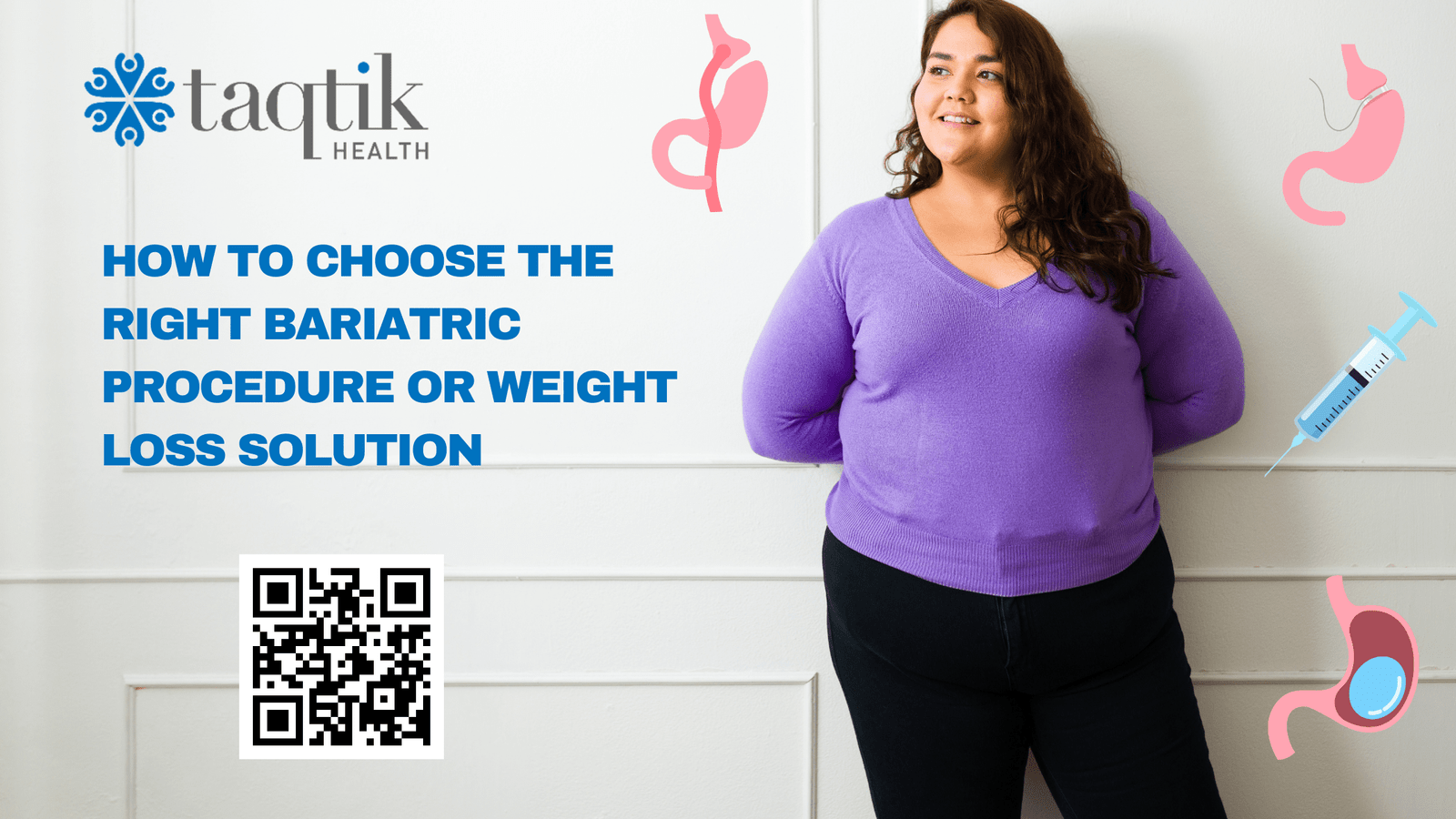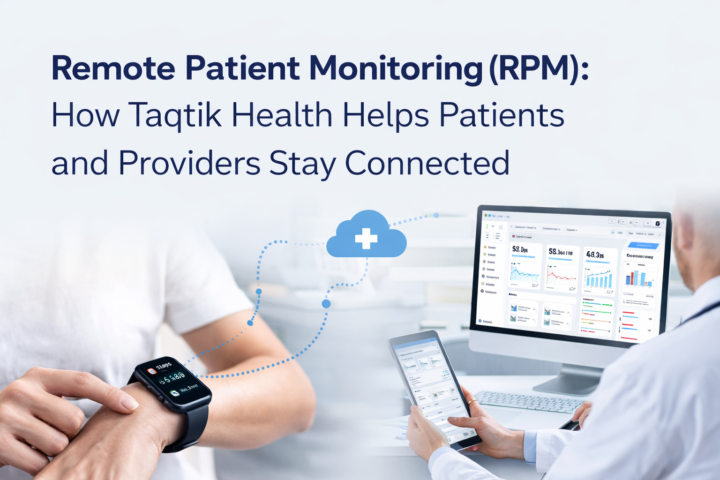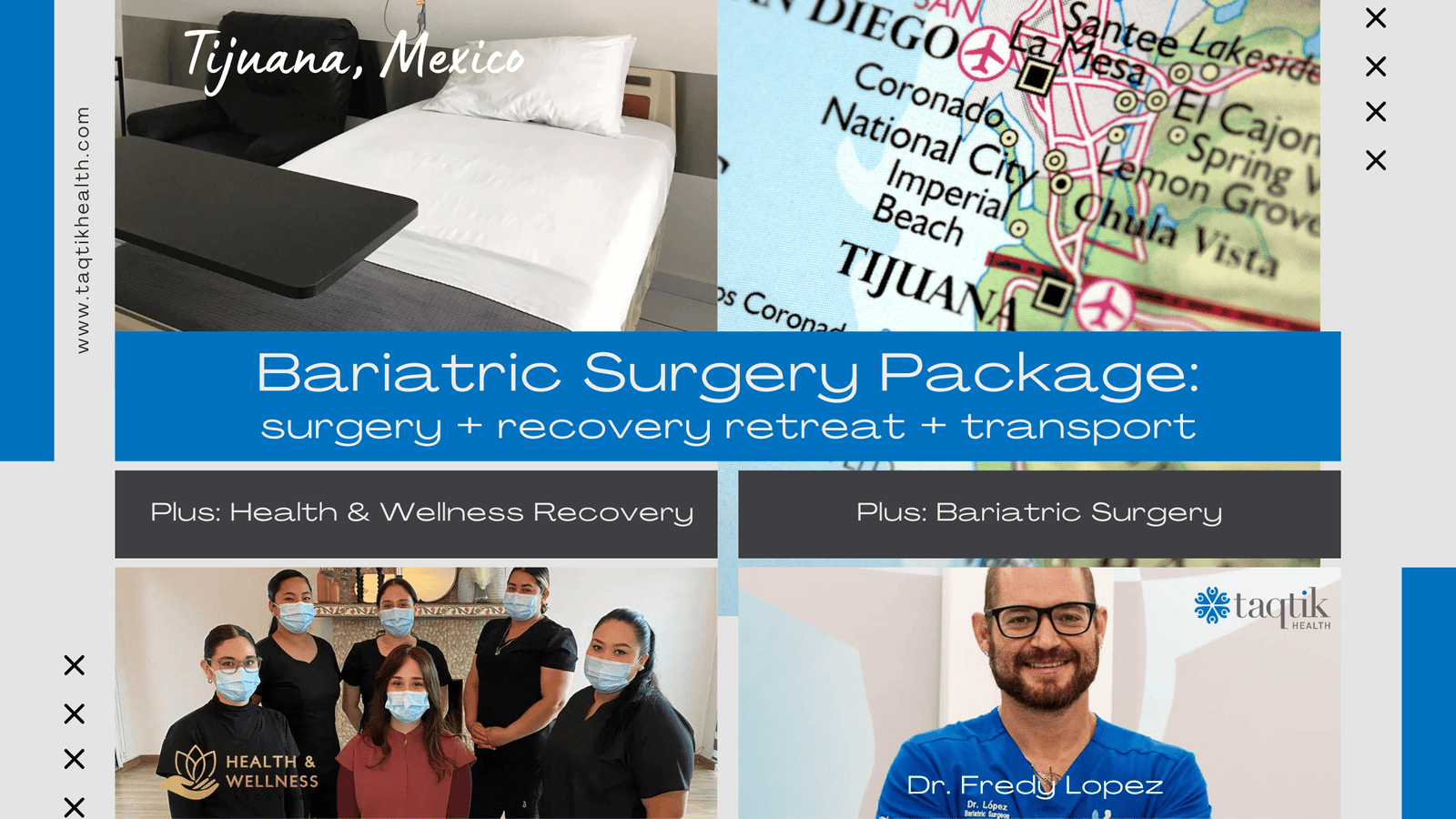How to Choose the Right Bariatric Procedure or Weight Loss Solution
Choosing the right weight loss solution is a deeply personal decision that depends on various factors, including your health, lifestyle, and goals. At Taqtik Health, we understand the complexities involved in making this choice and aim to provide you with comprehensive information to help you make an informed decision. This guide will explore the different bariatric procedures and weight loss solutions available, including gastric bypass, gastric sleeve, gastric balloon, and medical options like Ozempic and semaglutide injections. We will discuss the benefits, risks, and considerations for each, helping you determine the best path forward.
Understanding Bariatric Surgery and Weight Loss Solutions
Bariatric surgery and weight loss medications are tools that can assist individuals in achieving significant weight loss and improving overall health. These interventions are often recommended when lifestyle changes alone, such as diet and exercise, have not yielded sufficient results. The primary goal of these solutions is to reduce the risk of obesity-related complications, such as type 2 diabetes, hypertension, sleep apnea, and heart disease.
1. Gastric Bypass Surgery
What is Gastric Bypass?
Gastric bypass surgery, also known as Roux-en-Y gastric bypass, is a well-established bariatric procedure. It involves creating a small pouch at the top of the stomach and connecting it directly to the small intestine, bypassing a significant portion of the stomach and the first part of the small intestine.
Who is it for?
Gastric bypass is typically recommended for individuals with a BMI of 40 or higher, or those with a BMI of 35 or higher with obesity-related health conditions such as diabetes, hypertension, or sleep apnea. It is especially beneficial for patients with severe acid reflux (GERD) since the procedure can reduce or eliminate symptoms.
Benefits
- Significant Weight Loss: Patients can lose up to 60-80% of their excess body weight within the first 18-24 months.
- Improved Health Conditions: Many patients experience a resolution or improvement of obesity-related conditions.
- Long-Term Success: Gastric bypass is associated with sustained weight loss over the long term.
Considerations
- Nutritional Deficiencies: Due to the reduced absorption of nutrients, patients must take lifelong vitamin and mineral supplements.
- Dumping Syndrome: Some patients experience this condition, where food moves too quickly through the small intestine, causing nausea, vomiting, and diarrhea.
2. Gastric Sleeve Surgery
What is Gastric Sleeve?
Gastric sleeve surgery, also known as sleeve gastrectomy, involves removing approximately 75-80% of the stomach, leaving a narrow tube or "sleeve." This procedure reduces the stomach's capacity, limiting food intake.
Who is it for?
This procedure is suitable for individuals with a BMI of 40 or higher, or those with a BMI of 35 or higher with associated health conditions. It is an excellent option for those seeking significant weight loss without the need for complex intestinal bypass.
Benefits
- Significant Weight Loss: Patients can lose 50-70% of their excess body weight within the first year.
- No Bypass: The procedure does not involve rerouting the intestines, reducing the risk of nutritional deficiencies.
- Reduced Hunger: The removal of the stomach's fundus, which produces the hunger hormone ghrelin, often leads to reduced appetite.
Considerations
- Irreversible: Unlike adjustable gastric banding, the gastric sleeve is irreversible.
- Potential for Weight Regain: Some patients may experience weight regain over time if dietary guidelines are not followed.
3. Gastric Balloon
What is Gastric Balloon?
A gastric balloon is a non-surgical weight loss solution involving inserting a deflated balloon into the stomach through the mouth. Once in place, the balloon is inflated with saline, occupying space in the stomach and promoting a feeling of fullness.
Who is it for?
The gastric balloon is suitable for individuals with a BMI of 30-40 who have not achieved weight loss through diet and exercise alone. It is also an option for patients who need to lose weight before undergoing a more invasive surgical procedure.
Benefits
- Non-Surgical: The procedure is minimally invasive, typically performed as an outpatient procedure.
- Temporary: The balloon is removed after six months, making it a reversible option.
- Moderate Weight Loss: Patients can lose an average of 10-15% of their total body weight.
Considerations
- Temporary Solution: The balloon is not a long-term solution and requires lifestyle changes to maintain weight loss after removal.
- Potential Discomfort: Some patients experience nausea, vomiting, or abdominal discomfort, especially in the first few days after insertion.
4. Ozempic and Semaglutide Injections
What are Ozempic and Semaglutide?
Ozempic is a brand name for semaglutide, a medication originally developed to treat type 2 diabetes. It mimics the hormone GLP-1 (glucagon-like peptide-1), which helps regulate blood sugar levels and appetite. Semaglutide is also available under the brand name Wegovy, specifically for weight loss.
Who is it for?
Ozempic and other semaglutide-based medications are suitable for adults with a BMI of 30 or higher, or those with a BMI of 27 or higher with at least one weight-related health condition. They are particularly beneficial for individuals who prefer a non-surgical approach to weight loss.
Benefits
- Effective Weight Loss: Clinical trials have shown that patients can lose up to 15% of their body weight.
- Blood Sugar Control: It helps manage blood sugar levels, making it ideal for patients with type 2 diabetes.
- Appetite Suppression: The medication slows gastric emptying and promotes a feeling of fullness, reducing calorie intake.
Considerations
- Side Effects: Common side effects include nausea, vomiting, diarrhea, and constipation.
- Cost: Semaglutide injections can be expensive, and insurance coverage may vary.
- Long-Term Commitment: Patients may need to continue the medication long-term to maintain weight loss.
Choosing the Right Solution: Key Considerations
When deciding on a bariatric procedure or weight loss solution, several factors must be considered. Here are some key considerations to help you make an informed decision:
1. Health Conditions and Medical History
Your overall health and medical history are crucial in determining the most suitable weight loss solution. For example, if you have a history of acid reflux, gastric bypass may be more appropriate than gastric sleeve. If you have type 2 diabetes, semaglutide injections might offer the dual benefit of weight loss and blood sugar control.
2. Weight Loss Goals
Consider your weight loss goals and the amount of weight you want to lose. More invasive surgical procedures like gastric bypass and gastric sleeve may be more suitable for significant weight loss, while options like the gastric balloon and semaglutide injections are better for moderate weight loss.
3. Lifestyle and Preferences
Your lifestyle and personal preferences play a significant role in choosing the right solution. If you prefer a non-surgical approach, the gastric balloon or semaglutide injections may be more appealing. Conversely, if you're looking for a more permanent solution, bariatric surgery might be the right choice.
4. Commitment and Compliance
Weight loss solutions require a commitment to lifestyle changes, including diet and exercise. Consider your willingness to adhere to post-procedure guidelines, such as dietary restrictions and follow-up appointments. Long-term success often depends on your ability to maintain these changes.
5. Risks and Complications
Each weight loss solution has potential risks and complications. It's essential to discuss these with your healthcare provider to understand the potential outcomes and determine the best option for you.
Conclusion: Finding Your Path with Taqtik Health
At Taqtik Health, we are committed to helping you find the best weight loss solution tailored to your needs. Whether considering bariatric surgery or exploring medical weight loss options, our team of experts is here to guide you through the decision-making process.
Every journey is unique, and the right solution depends on your health, goals, and preferences. By understanding the available options and considering the key factors outlined in this guide, you can make an informed decision that sets you on the path to a healthier, happier life.
We invite you to contact Taqtik Health for a personalized consultation and support in achieving your weight loss goals. Together, we can find the right solution and help you embark on a transformative journey toward better health and well-being.
Remote Patient Monitoring (RPM): How Taqtik Health Helps Patients and Providers Stay Connected
Remote Patient Monitoring (RPM) is changing how healthcare providers support patients between visits. By using secure digital tools, RPM allows care teams to monitor patient progress remotely, improve engagement, and reduce administrative workload. Taqtik Health offers a modern Remote Patient Monitoring platform designed to support healthcare programs with simple onboarding, clear progress tracking, and secure...Continue reading→
Taqtik Health RPM: Your Partner in Post-Bariatric Surgery Success
At Taqtik Health, we understand that bariatric surgery is a powerful step toward a healthier, more fulfilling life. But we also know that the journey doesn’t end in the operating room. The real challenge and the real transformation happens in the months and years after your procedure. That’s why we created Taqtik Health Remote Patient...Continue reading→
Post-Bariatric and GLP-1 Post-Care to Maximize Results
Post-Bariatric and GLP-1 Post-Care to Maximize Results | Taqtik Health Introduction Undergoing bariatric surgery or starting GLP-1 (glucagon-like peptide-1) agonist treatments like semaglutide (Ozempic, Wegovy) or tirzepatide (Mounjaro, Zepbound) is a major step toward long-term weight loss and improved metabolic health. But these treatments are only part of the journey. What you do after surgery...Continue reading→
Remote Patient Monitoring for Obesity: A Smarter Way to Support Surgical and Non-Surgical Patients
Losing weight and improving your health is a personal journey—and it doesn’t always require surgery. Whether you're preparing for bariatric surgery, recovering from it, or trying to manage your weight and health without surgery, one thing remains constant: support matters. At Taqtik Health, we believe long-term success comes from daily progress, consistent accountability, and expert...Continue reading→
How Remote Patient Monitoring (RPM) Supports Bariatric Surgery and Diabetes Care
Remote Patient Monitoring for Bariatric Surgery and Diabetes Management Choosing bariatric surgery or committing to better diabetes management is a life-changing decision—and it’s just the start of your journey to a healthier, happier you. Whether you’re preparing for surgery, healing afterward, or working to manage diabetes, having the right support makes all the difference. That’s...Continue reading→
Advancing Value-Based Healthcare Through Cross-Border Health
At Taqtik Health, we are dedicated to delivering value-based healthcare by providing patients with affordable, high-quality, and patient-centered medical solutions. Our platform connects individuals with top-tier healthcare providers worldwide, ensuring they receive the best possible care at the best value through cross-border healthcare. How Taqtik Health Contributes to Value-Based Healthcare 1. Affordable, High-Quality Care Without...Continue reading→
Navigating Healthcare After Job Loss: Options and Strategies for Coverage
Losing your job is stressful enough without the added worry of losing your healthcare coverage. For many individuals in Western countries, health insurance is tied to employment, leaving them vulnerable during times of economic uncertainty and widespread layoffs. Taqtik Health explores the options available to ensure you can access quality healthcare even when you're between...Continue reading→
Bariatric Center J.L. Prado in Tijuana, Mexico: Your Destination for Advanced Weight Loss Surgery
Bariatric surgery has become a life-changing solution for individuals struggling with obesity and its related health complications. In recent years, Tijuana, Mexico, has emerged as a leading destination for affordable and high-quality bariatric procedures. One of the most trusted names in this field is Bariatric Center J.L. Prado, where a team of skilled surgeons, cutting-edge...Continue reading→
Transform Your Life with Our Bariatric Surgery Promotion in Tijuana Mexico
Transform Your Life with Bariatric Surgery at J.L. Prado Surgical Center in Tijuana, Mexico, with Dr. Fredy Lopez Are you ready to take control of your health and achieve long-term weight loss? Taqtik Health is excited to offer a special promotion for bariatric surgery at J.L. Prado Surgical Center with the renowned Dr. Fredy Lopez,...Continue reading→
Bariatric Surgery Case Study: Kael Sangnam
Background: Kael Sangnam, a 37-year-old with a BMI of 34.7, had been struggling with several health issues, including sleep apnea, shortness of breath, and persistent back pain. Despite various attempts to manage her weight, these health conditions continued to affect her quality of life. Realizing that these conditions were closely linked to her weight, Kael...Continue reading→












